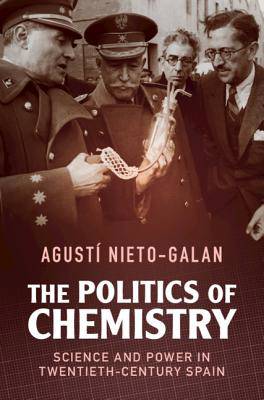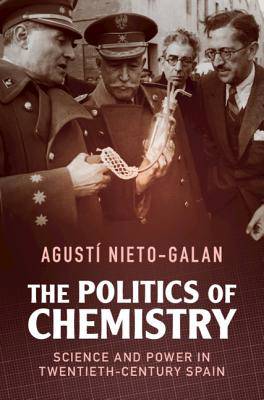
Je cadeautjes zeker op tijd in huis hebben voor de feestdagen? Kom langs in onze winkels en vind het perfecte geschenk!
- Afhalen na 1 uur in een winkel met voorraad
- Gratis thuislevering in België vanaf € 30
- Ruim aanbod met 7 miljoen producten
Je cadeautjes zeker op tijd in huis hebben voor de feestdagen? Kom langs in onze winkels en vind het perfecte geschenk!
- Afhalen na 1 uur in een winkel met voorraad
- Gratis thuislevering in België vanaf € 30
- Ruim aanbod met 7 miljoen producten
Zoeken
€ 183,45
+ 366 punten
Uitvoering
Omschrijving
Agustí Nieto-Galan argues that chemistry in the twentieth century was deeply and profoundly political. Far from existing in a distinct public sphere, chemical knowledge was applied in ways that created strong links with industrial and military projects, and national rivalries and international endeavours, that materially shaped the living conditions of millions of citizens. It is within this framework that Nieto-Galan analyses how Spanish chemists became powerful ideological agents in different political contexts, from liberal to dictatorial regimes, throughout the century. He unveils chemists' position of power in Spain, their place in international scientific networks, and their engagement in fierce ideological battles in an age of extremes. Shared discourses between chemistry and liberalism, war, totalitarianism, religion, and diplomacy, he argues, led to advancements in both fields.
Specificaties
Betrokkenen
- Auteur(s):
- Uitgeverij:
Inhoud
- Aantal bladzijden:
- 308
- Taal:
- Engels
- Reeks:
Eigenschappen
- Productcode (EAN):
- 9781108482431
- Verschijningsdatum:
- 22/08/2019
- Uitvoering:
- Hardcover
- Formaat:
- Genaaid
- Afmetingen:
- 163 mm x 237 mm
- Gewicht:
- 589 g

Alleen bij Standaard Boekhandel
+ 366 punten op je klantenkaart van Standaard Boekhandel
Beoordelingen
We publiceren alleen reviews die voldoen aan de voorwaarden voor reviews. Bekijk onze voorwaarden voor reviews.









